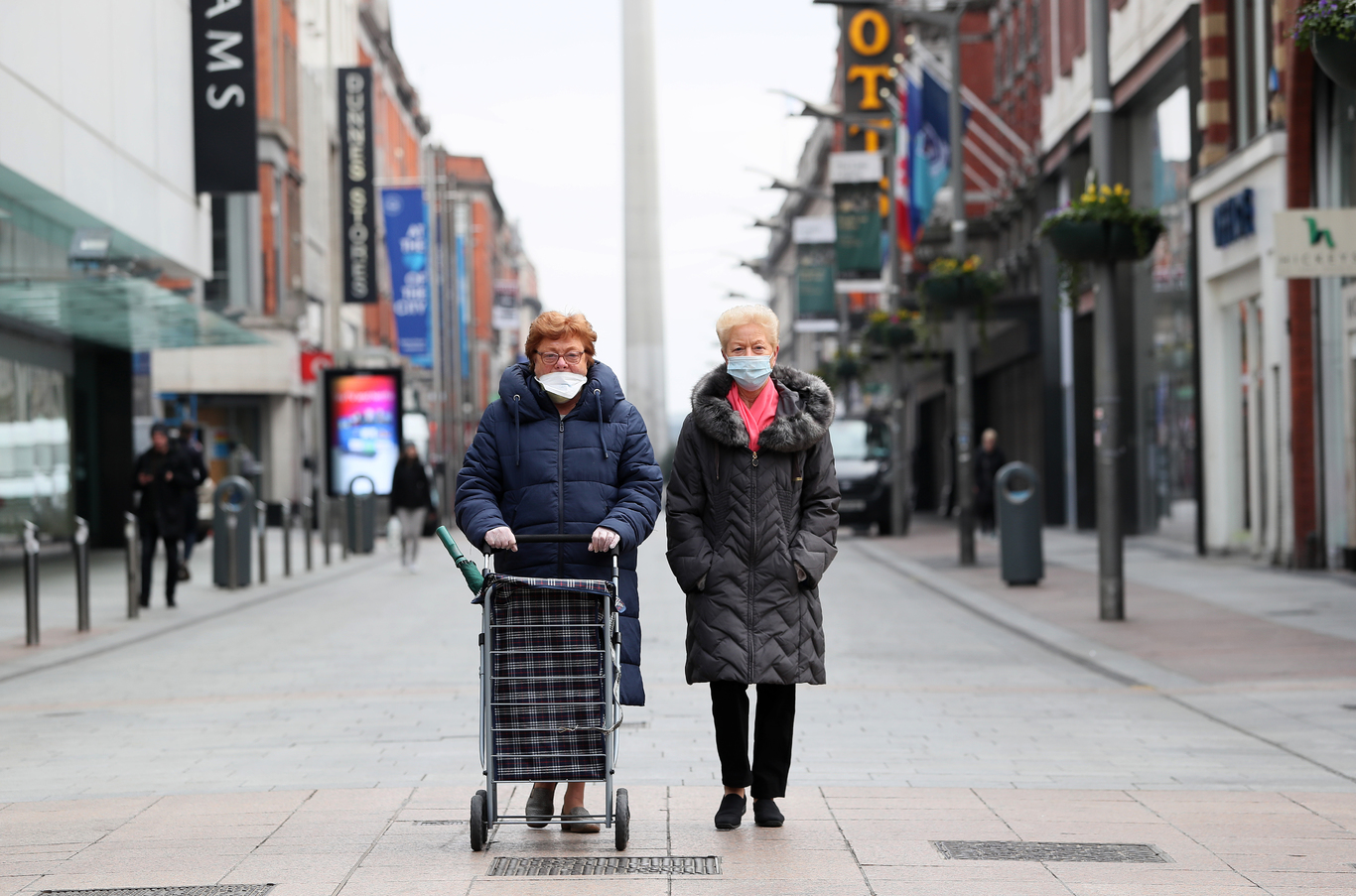Covid-19: A tale of two economic scenarios
It could be bad, or it could be worse. This evening’s main points for business
IN THIS TURBULENT time, Fora is going to bring you updates every morning and evening on the most relevant issues for Irish business dealing with the outbreak of Covid-19. Here are the main points this evening, March 31 at 5:30 pm. We want to know how your business is dealing with the outbreak, drop us a line at news@fora.ie
With the pandemic weighing heavily on the economy and upending my people’s lives, thoughts are turning to how bad the impact might yet be.
Our colleagues over at TheJournal.ie have the details as tens of thousands of people across the country will receive the Covid-19 Pandemic Unemployment Payment into their bank accounts from today.
Bad or worse
This morning EY Ireland modelled two economic scenarios that it has developed in response to the ongoing crisis, both ‘Base Case’ and ‘Prolonged Disruption’ scenarios.
First up is the ‘Base Case’ scenario: A high level of disruption until the end of May 2020 and then business begins to return to normal.
- GDP in the Republic of Ireland is estimated to be 7.3% lower in 2020;
- job losses of 177,000;
- up to 450,000 people will lose a job or be furloughed before a bounce-back period later in the year.
Second is the ‘Prolonged Disruption’ scenario: A high level of disruption until the end of August 2020.
- GDP in the Republic of Ireland is projected to contract by 13.1%
- job losses of 318,000
- up to 675,000 people will either lose their job or be furloughed by the end of the summer before the economy improves toward the end of 2020
“The human cost of the COVID-19 crisis is sadly rising every day and the economic cost is rising as well. The effect of this pandemic will be felt for years, if not decades due to the scale of borrowing required to see economies through the most virulent phase of the outbreak. Early estimates from the EY Economic Eye model suggest a recession is certain, and a depression is possible if the economic restrictions need to be in force for a protracted time,” Neil Gibson, Chief Economist for EY Ireland, said.
Graham Reid, a partner and head of markets at EY Ireland, said that businesses across the country are grappling with the “challenge of making the right decisions in this time of huge uncertainty”.
“The challenge we’re facing is unique and in stark contrast to previous recessions,” he said. “We are now experiencing both a supply-side and demand-side shock. Very few businesses contemplated the impact a pandemic would or could have. How could they?”
Impact on jobs
One in five companies have already laid off staff as a result of the coronavirus pandemic and further staff cuts are likely in the coming months, according to a new survey by business group Dublin Chamber.
A survey carried out last week, of 304 companies, found that 22% of firms have already laid off staff, either temporarily or permanently. Almost one third of respondents said they anticipate further lay-offs over the next three months.
The Chamber, which represents 1,300 businesses, said the survey findings highlight the huge impact that the coronavirus is having on business.
A decline in revenue, reduced cash flow, and liquidity issues were the top three impacts of the pandemic cited by businesses.The survey found that 80% have experienced a drop in revenue due to coronavirus and almost one third of firms (30%) report that revenues have fallen by more than 50%.
“These results highlight the huge impact that the coronavirus pandemic is having on business. We’ve surveyed members on a weekly basis over the past three weeks and there has been a stark rise in both the number of firms experiencing a drop in revenues and also those having to implement lay-offs,” Aebhric Mc Gibney, Dublin Chamber’s director of public and international affairs, said.
Markets rise
European stock markets rose at the open on Tuesday, extending gains won in the previous session, as traders weigh up global stimulus efforts to tackle the economic fallout from the coronavirus.
A jump in Chinese factory activity despite the virus-hit global economy helped keep equities markets bubbling higher, but oil prices failed to rebound convincingly from 18-year lows.
- In Dublin the Iseq was up by 4.25%;
- London gained 2%;
- Frankfurt climbed 1.2%, Paris was up by 0.4%;
- Milan advanced 1.1% and Madrid was up 1.9%.
Get our Daily Briefing with the morning’s most important headlines for innovative Irish businesses.
Note: This piece will be updated with additional information during the day. With reporting from AFP






